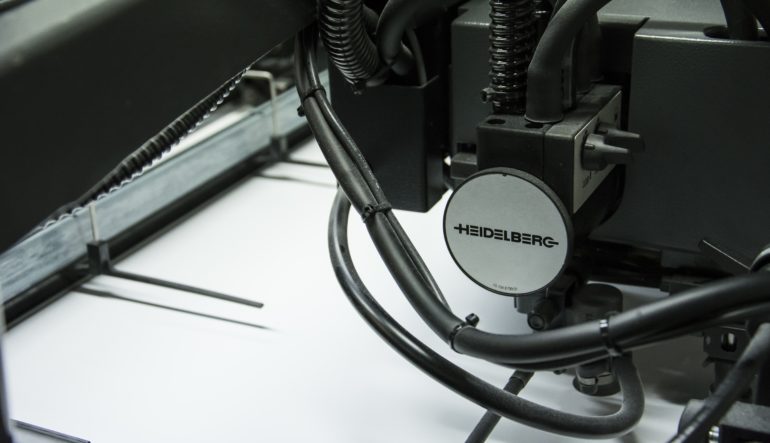Quick and useful print tips to help you get the most out of your printing.
Bleed – and it’s not about runny red stuff
Bleed is any image, text or background which extends right to or beyond the cut edge of a printed page. If bleed is required, the piece must be printed on a larger sheet and trimmed to correct size, as neither digital or offset presses can print right to the edge of the sheet.
It’s important to set up your file correctly if you need bleed.
Anything that touches a trim edge must be extend 3mm past the trim line.
And it’s best to have at least 3mm safe copy area from the edge – keep all important image/text at least 3mm from the trim line.
Call us if this sounds like gobbledegook and we’ll talk you through it
Paper Weights – gsm and all that
Australia uses metric paper measurement. Paper and card stocks are graded according to gsm (grams per square metre). A higher gsm means a heavier/thicker stock. Papers are generally 60 to 180gsm, card stocks range from 200gsm up.
Basic Laser Bond (Copy Paper) – 80gsm
Standard Gloss Brochure paper – 150gsm
Common Postcard/Business Card – 300gsm
Australian Paper Sizes
Sizes below are the common formats used in print production in Australia. Using standard sizing allows for efficient utilization of paper, and matching to standard envelopes and packaging.
That said, there are good arguments for using custom shapes and sizing – you’re much more likely to stand out from the crowd. Minuteman Press can advise you on the pros and cons of your size choices to get the best value and most effective result from your print budget.
Paper
A0 841 x 1189
A1 594 x 841
A2 420 x 594
A3 420 x 297
A4 210 x 297
A5 148.5 x 210
A6 148.5 x 105
A7 74 x 105
DL 210 x 99
Envelopes
DL 220 x 110
C6 114 x 162
C5 162 x 229
C4 229 x 324


